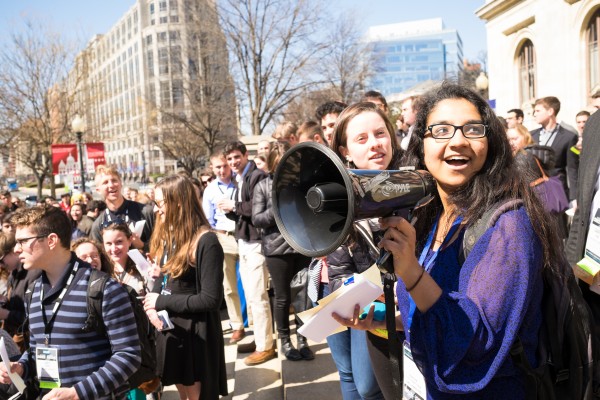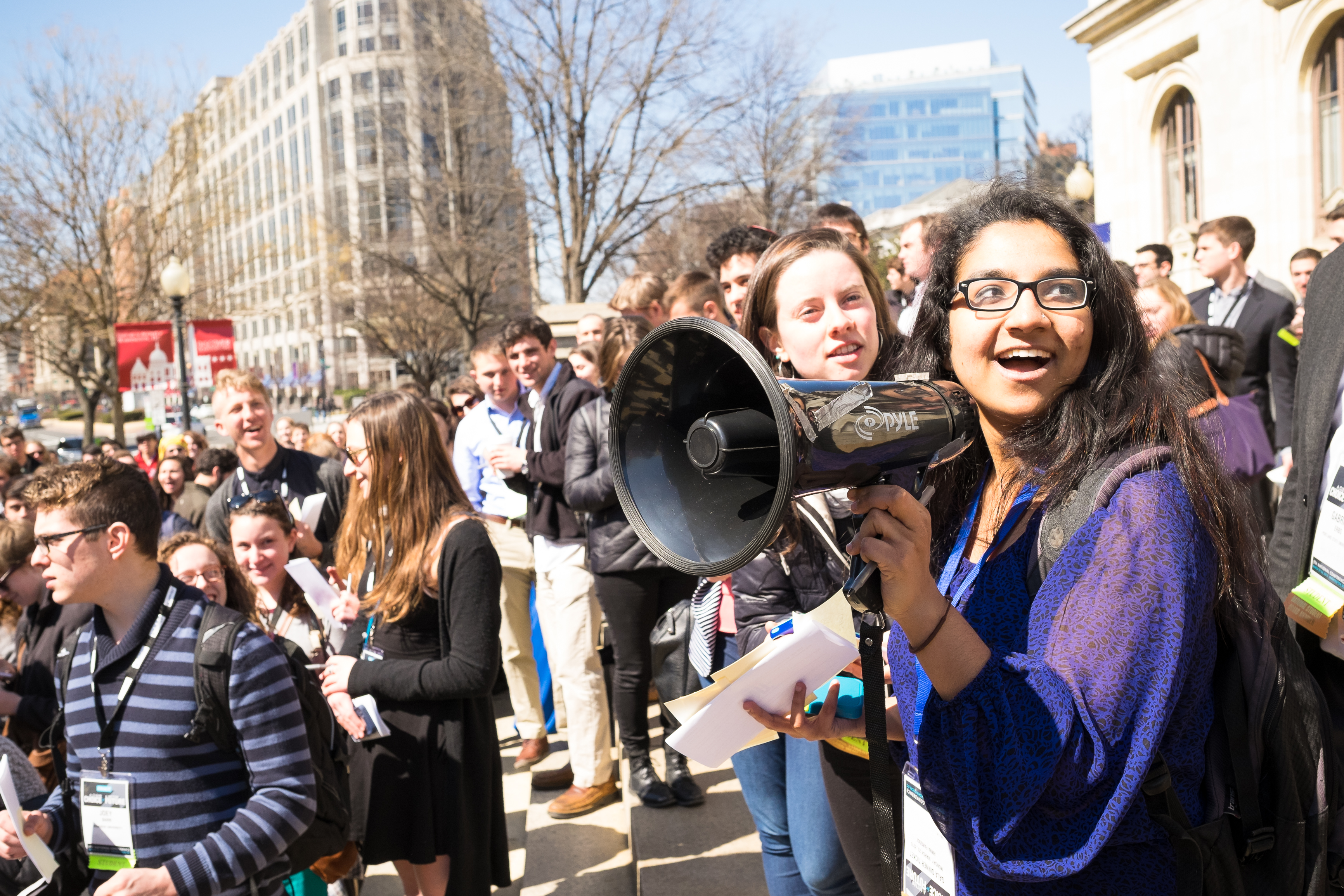
For Amna Farooqi, the newly elected president of the J Street U student board, what was once the elephant in the room has now become her job.
Farooqi, a first-generation Pakistani-American, has been making headlines across the Jewish world as the board’s first Muslim president. She was elected to the position at the Aug. 17 J Street U Summer Leadership Institute.
The reaction to her election has largely been positive, she told New Voices, though she finds it “kind of bizarre”: “I really haven’t done anything other than be who I am,” she said.
There are people who aren’t happy with her election “on both ends,” Farooqi added, but she’s still excited to continue her work on the Israeli-Palestinian conflict.
Farooqi grew up in Potomac, Md., where she described the conflict as being the “awkward elephant in the room.”
“Growing up, sharing about it in the community, but also knowing at home that we were more sympathetic to the Palestinian narrative — that made me certainly curious about learning more,” she said.
When she got to the University of Maryland, where she’s now a senior, she did learn more — by joining the Israel Studies program and J Street U.
She’d heard about J Street while volunteering the summer after graduating from high school. In her first year at Maryland, after trying and failing to find the campus chapter, she ran into Benjy Cannon — last year’s student board president — at an event she was covering for the school newspaper.
“Chris Wallace had come to talk about Israel and I actually ran into Benjy Cannon there, who was co-chair of the Maryland chapter,” Farooqi said. “We became friends quickly, and I got involved.”
Last year, she served as the student board’s southeast representative. This summer, she interned for J Street U in Jerusalem. She described her experience with the organization as “amazing.”
“J Street U was really the place where I felt that I could be the most productive and actually do things to try to one, understand the conflict better, but also make a difference in it — specifically, a place that could support Israel as a Jewish and democratic state, and also work to end the occupation,” she said.
People have always been curious about why a non-Jew would get involved with J Street U, Farooqi said, but she’s had a good experience there.
“J Street U really is a place for anyone who is pro-Israel and pro-peace to do this work,” she said.
As president, Farooqi plans to continue with the off-campus work started after the Israeli-Palestinian peace negotiations collapsed last year. The work she has in mind includes holding American Jewish organizations accountable to the community’s values — which she believes support a two-state solution.
“I really do think the majority of American Jewish students and community support a two-state solution and want peace, and I think that there is a lot of right-wing donor control over that that infringes on that,” Farooqi said.
For example: the ongoing rift between J Street U and Hillel International that began when Eric Fingerhut pulled out of a speech he’d agreed to give at the J Street U conference last March. At a speech at the Summer Leadership Institute, Fingerhut took full responsibility for his decision, but J Street U director Sarah Turbow told New Voices previously that students have been hesitant to discount the role that donors play in Hillel.
“I’d guess that it will come up again in different dynamics,” Farooqi added, “but really I think that many American Jewish organizations are not accountable to the people that they are supposed to represent, and so I think that dynamic is probably something we’re going to run into time and time again.”
Chloe Sobel graduated from Queen’s University and is editor in chief of New Voices.

